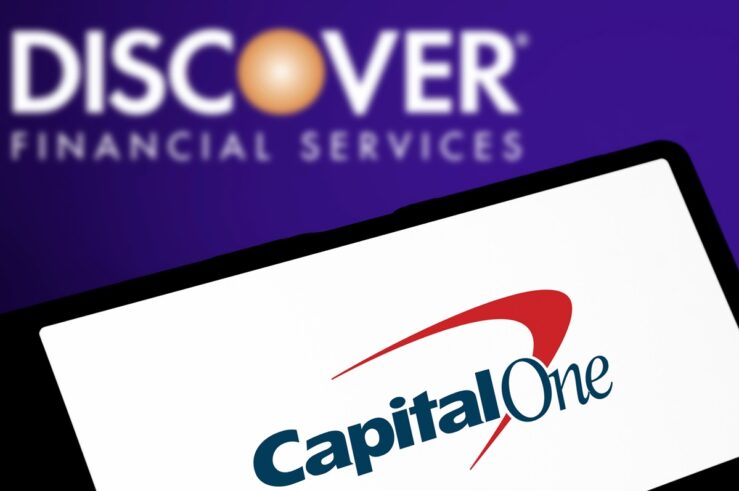Showing results for: “digital markets act”
Copyright Does Not Violate the Right to Free Speech
I’m speaking on a panel hosted by the Free Speech Dialogues program at the University of Texas at Austin this Thursday, September 20. The topic this year is Intellectual Property Rights and Free Speech, and UCLA law professor Neal Netanal and author Robert Levine are also speaking on the panel. The Austin newspaper, the Statesman, asked ... Copyright Does Not Violate the Right to Free Speech
ICLE on the ACP, BEAD in the Spotlight, Small Steps Toward Ending the Spectrum Impasse
School’s back in session and the Telecom Hootenanny is heating up. We’ve got a hot-off-the-presses issue brief on the ACP, more BEAD agonistes, and the latest on spectrum auctions. The Affordable Connectivity Program: ‘Good Enough’ to Keep Funding In a new International Center for Law & Economics (ICLE) issue brief, Kristian Stout and I examine ... ICLE on the ACP, BEAD in the Spotlight, Small Steps Toward Ending the Spectrum Impasse
ACP Spends More Money While Running Out of Money; BEAD Rules Run Amok
If this is what a summer slowdown looks like in telecom policy world, then autumn is going to be a real humdinger. FCC Announces More Spending for ACP Outreach Last week, the Federal Communications Commission (FCC) announced government agencies and nonprofits in 11 states and territories will receive an additional $4.3 million to promote the ... ACP Spends More Money While Running Out of Money; BEAD Rules Run Amok
Why Data Is Not the New Oil
“Data is the new oil,” said Jaron Lanier in a recent op-ed for The New York Times. Lanier’s use of this metaphor is only the latest instance of what has become the dumbest meme in tech policy. As the digital economy becomes more prominent in our lives, it is not unreasonable to seek to understand ... Why Data Is Not the New Oil
How Well Do Incentive Programs in the Workplace Work?
WSJ has an interesting story about the growing number of employer efforts to import “game” like competitions in the workplace to provide incentives for employees to engage in various healthy activities. Some of these ideas sound in the behavioral economics literature, e.g. choice architecture or otherwise harnessing the power of non-standard preferences with a variety ... How Well Do Incentive Programs in the Workplace Work?
Biweekly FTC Roundup: Grail-Shaped Beacon Edition
The lame duck is not yet dead, and the Federal Trade Commission (FTC) is supposed to be an independent agency. Work continues. The Commission has announced a partly open oral argument in the Illumina-Grail matter. That is, parts of the argument will be open to the public, via webcast, and parts won’t. This is what’s ... Biweekly FTC Roundup: Grail-Shaped Beacon Edition
The Market for DRM
Everyone is talking about Steve Jobs’ open letter on DRM,”Thoughts on Music,” including, best among all of them, my colleague, Josh.  Among many others, see excellent entries from Jim DeLong, Randy Picker and Mike Madison. Frank Pasquale weighs in with a predictable post about how wonderful the world would be if we just regulated his (perfect) vision of ... The Market for DRM
The Law & Economics of the Capital One-Discover Merger
Capital One Financial announced plans late last month to acquire Discover Financial Services in a $35.3 billion deal that would give Capital One its own credit-card payment network, while simultaneously allowing the company to expand its deposit base, credit-card offerings, and rewards programs. Conversely, credit analysts like Matt Schulz of LendingTree note that “if Capital ... The Law & Economics of the Capital One-Discover Merger
Uber and the Mill of Sanssouci
Freedom of enterprise is considered a second-class freedom in Spain, rather than a fundamental right. It is clear that this has been the view not only of successive Spanish governments since the current Constitution was promulgated in 1978, but also of the judges of the Supreme Court of Spain (Tribunal Supremo) and the Constitutional Court ... Uber and the Mill of Sanssouci
What Has Big Tech Ever Done for Us? Part I
[TOTM: The following is part of a blog series by TOTM guests and authors on the law, economics, and policy of the ongoing COVID-19 pandemic. The entire series of posts is available here. This post is authored by Dirk Auer, (Senior Fellow of Law & Economics, International Center for Law & Economics).] Republican Senator Josh ... What Has Big Tech Ever Done for Us? Part I
The Apple E-Book Kerfuffle Meets Alfred Marshall’s Principles of Economics
From a pure antitrust perspective, the real story behind the DOJ’s Apple e-book investigation is the Division’s deep commitment to the view that Most-Favored-Nation (MFN) clauses are anticompetitive (see also here), no doubt spurred on at least in part by Chief Economist Fiona Scott-Morton’s interesting work on the topic. Of course, there are other important ... The Apple E-Book Kerfuffle Meets Alfred Marshall’s Principles of Economics
Time To Make The Donuts: Self-Help Agreements and ICANN Accountability
It seems like debates that involve the ability to access the Internet fall into absolutism very quickly. One could almost construct a corollary of Godwin’s law: As the length of a policy discussion involving the Internet increases, the probability of someone claiming a nefarious plot to destroy the Internet approaches 1. Should there be zero-rated ... Time To Make The Donuts: Self-Help Agreements and ICANN Accountability









